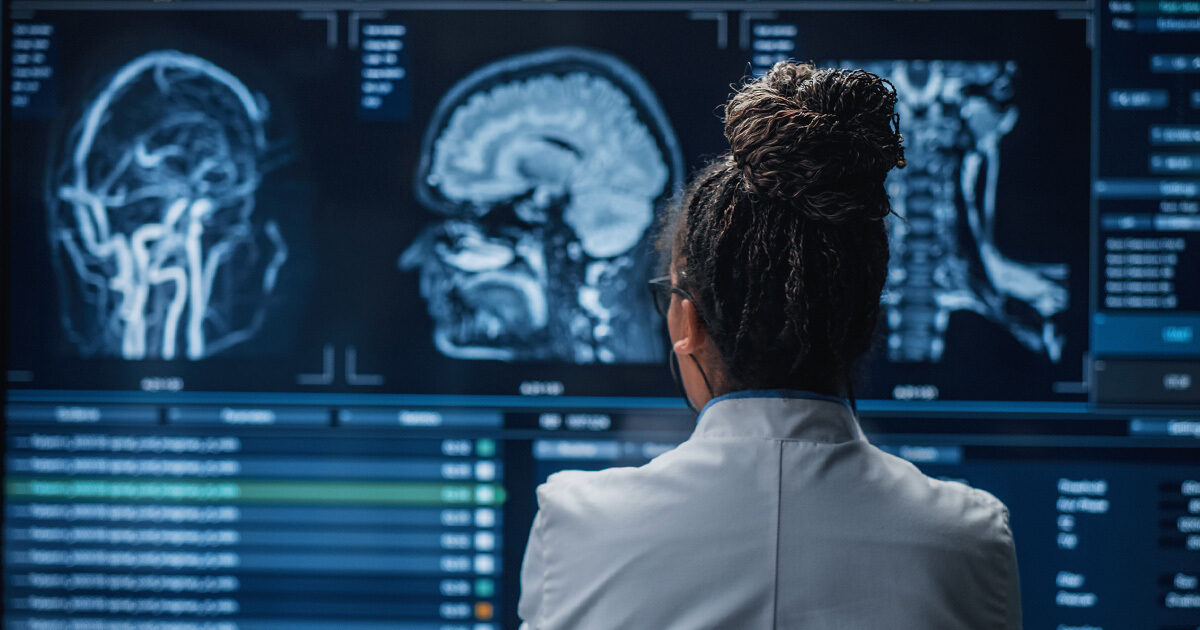What UT Health Austin Doctors Want You to Know About the Brain
Clinicians from the Mulva Clinic for Neurosciences share their perspective in honor of World Brain Day
Compiled and edited by: Lauren Schneider

The human brain is a sophisticated structure that performs countless functions each day. To address this complexity, clinicians from the Mulva Clinic for the Neurosciences were asked what they wish more people understood about the brain.
Gayle Ayers, DO
Geriatric Psychiatrist, Comprehensive Memory Center (Consulting Clinician)
“Depression and anxiety are not only treatable but there’s a very real necessity to this treatment for brain health. I compare untreated depression and anxiety to constantly revving the engine of a car. This is not good for the car and will affect the life of the car. Even mild anxiety and depression are not something you should just live with and tolerate.”
Christine Bartow, DO
Psychiatrist
“The brain’s connections are not fixed the way we once thought. For those with and without brain disease, change is possible. If there’s something about the way we think, what we feel, or how we interact with the world that presents a significant barrier, in most cases our brains have the capacity to learn to do something different, something healthier that serves us better as we work towards our individual goals. And remember, the brain thrives with a healthy daily routine (sleep, nutrients, and body movement).”
Jared F. Benge, PhD, ABPP
Neurologist, Comprehensive Memory Center
“Even in those moments where you are bored, down, worried, or tired, your brain is playing an incredible symphony. Modules are firing to keep your heart and lungs in rhythm. You have a system keeping you awake and alert. Your brain is taking everything you see, breaking it down, then putting it back together to tell you what things are and where they are in space. You are actively filtering out some stimuli and letting others come in. That’s just a few of hundreds of things your brain does every second.”
Lief Fenno, MD, PhD
Psychiatrist
“The brain is a physical entity that embodies our personality, our mind, our thoughts, our emotions. As a psychiatrist and neuroscientist, my work is to understand how the architecture of the brain gives rise to such breadth of possibility and experience – in both health and disease – and to apply this information to support my patients, family, and peers in leading meaningful lives.”
Robin Hilsabeck, PhD, ABPP
Neuropsychologist, Director of the Comprehensive Memory Center
“The brain is a network, which is both positive and negative. On the positive side, when the brain is injured, particularly early in life, other parts of the network can ‘take over’ or ‘pitch in’ to lessen the functional impact. On the negative side, when the brain is injured, the network is disrupted and can interfere with functions normally controlled by undamaged parts of the brain. For this reason, predictions about functional impact and recovery are nuanced and often differ based on what causes the damage.”
Corinne Jones, PhD, CCC-SLP
Speech-Language Pathologist
“Everyone knows the adage ‘use it or lose it,’ but I like to tell my patients who I see for swallowing rehabilitation that ‘use it and improve it’ is just as important of a concept. This holds for any kind of skilled task we do, and the improvement happens in the connections in the nervous system.”
Erin Logue, PhD, ABPP
Neuropsychologist
“Although all body systems functioning independently to a degree, they are interconnected and ultimately controlled by the brain. Your brain is like the CEO of your body, and ‘stuff’ at the CEO level rolls downhill. Take care of your brain, and the good that comes from it rolls downhill. Some of the best ways to do this are by engaging in regular exercise, obtaining eight hours of sleep a night, maintaining good social relationships, and caring for your emotional health by participating in mental health treatment when needed.”
Ethan Meltzer, MD
Neurologist, Multiple Sclerosis and Immunology Center
“The nervous system is a complex organ comprised of nerves and muscles that regulate almost all functions of our daily life, ranging from our sleep, to our walking, to even how we breathe air and digest food. Because of the innumerable functions of our brain and nervous system, neurologic disorders can manifest in ways that might not seem obvious. The key is to carefully identify the timing and progression since onset of symptoms. That history, when paired with a careful neurologic exam, are the two components most helpful to making a diagnosis.”
For more information about the Mulva Clinic for the Neurosciences, click here or call 1-833-UT-CARES (1-833-882-2737).